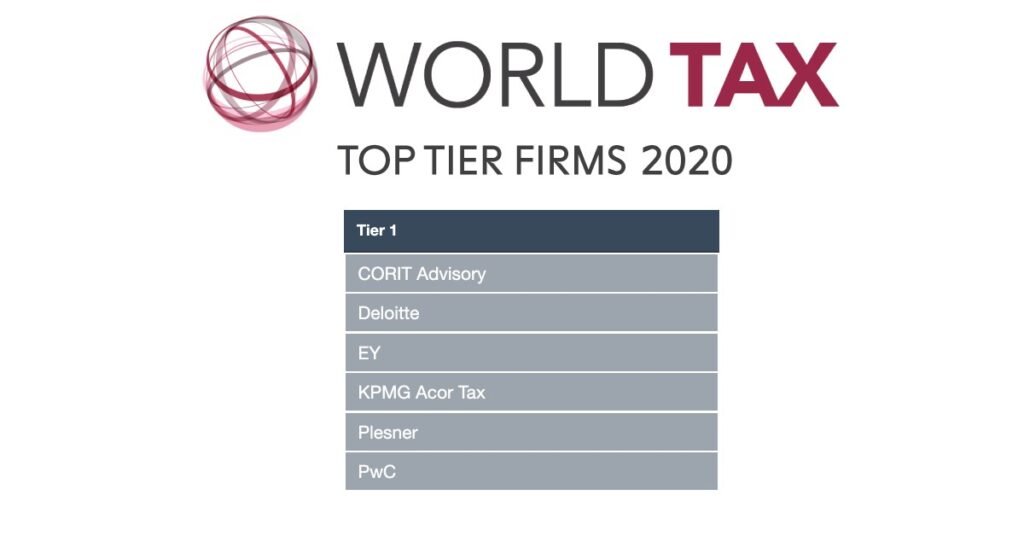Dear reader,
We are pleased to present this year’s issue of the CORIT Point of View.
Enjoy!
CORIT members Louise Fjord Kjærsgaard, Michael Tell and Henrik Guldhammer Nielsen have published an article providing a status on the risk of discretionary assessment in transfer pricing disputes from a Danish tax perspective.
The article is available here
In the 2020 edition of World Tax by International Tax Review, CORIT is ranked as a Tier 1 firm. CORIT is ranked Tier 1 as the only boutique firm and above all (but one) of the big full service law firms. Being a newcomer in the market and a tax only firm for us this is an important milestone and significant achievement.
We are thankful and honored that to be recognized as one of the elite tax firms in Denmark and will allow ourselves to celebrate and be proud of this milestone.
We would also like to express our gratitude to our clients and business partners. We promise to keep up the efforts and strive to improve.
The full ranking can be seen here

The Danish Association on EU Tax Law has organized a membership meeting focusing on the new draft Bill (i) implementing new Danish CFC rules (ATAD), (ii) adjusting the definition of a permanent establishment (OECD BEPS), (iii) allowing deductions for final losses (ECJ case law) and (iv) amending the rules for discretionary assessments in transfer pricing cases.
Peter Koerver Schmidt and Michael Tell will both present and provide their thoughts in relation to the proposed CFC rules and the implementation of the final loss doctrine into Danish tax law. The meeting is Wednesday, October 9, 2019 at 16.00 – 18.00.
Michael Tell was the Danish national reporter for the 2018 EATLP Congress in Zürich on the topic Tax Transparency.
Read the Danish national report here
CORIT member Louise Fjord Kjærsgaard has published an article i World Tax Journal under the title “Allocation of the Taxing Right to Payments for Cloud Computing-as-a-Service”
In the article Louise analyses the options available to user jurisdictions for taxing the value generated by cloud computing service providers under current international tax rules. The focus is on mixed contracts, the distinction between business income and royalties and whether the provision of such services constitute a permanent establishment of the cloud computing service providers. Against this background, value creation and the fundamental principles of legal certainty, neutrality and the ability to pay tax are discussed.
The article is published in: World Tax Journal vol. 11 (2019) no. 3.
We are happy and proud to announce that CORIT staff member Peter Koerver Schmidt has been appointed Professor with special responsibilities in tax law at Copenhagen Business School. It highlights CORIT’s strong academic ties and we are pleased that Peter will continue in his role as Academic Advisor with us.
CORIT member Peter Koerver Schmidt has authored an article on the topic of permanent establishment for private equity investors.
Read the article here
Managing director Jakob Bundgaard has authored an article on the taxation of emission rights and credits regarding greenhouse gases (in Danish).
Read the article here
Michael Tell was appointed national reporter (Denmark) for the 2019 IFA conference in London on the topic Interest Deduction Limitation Legislation. The Danish national report as well as the other reports for the 2019 IFA conference in London has just been published.
Read the report here